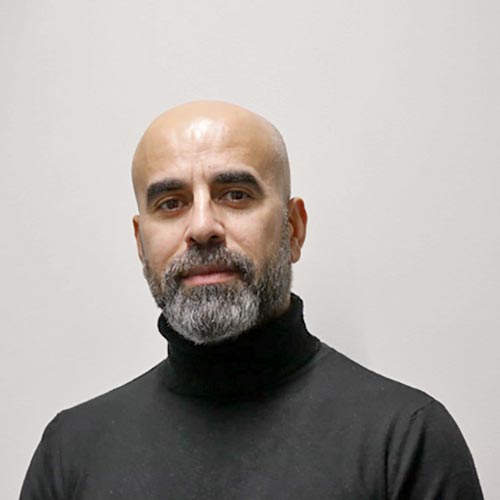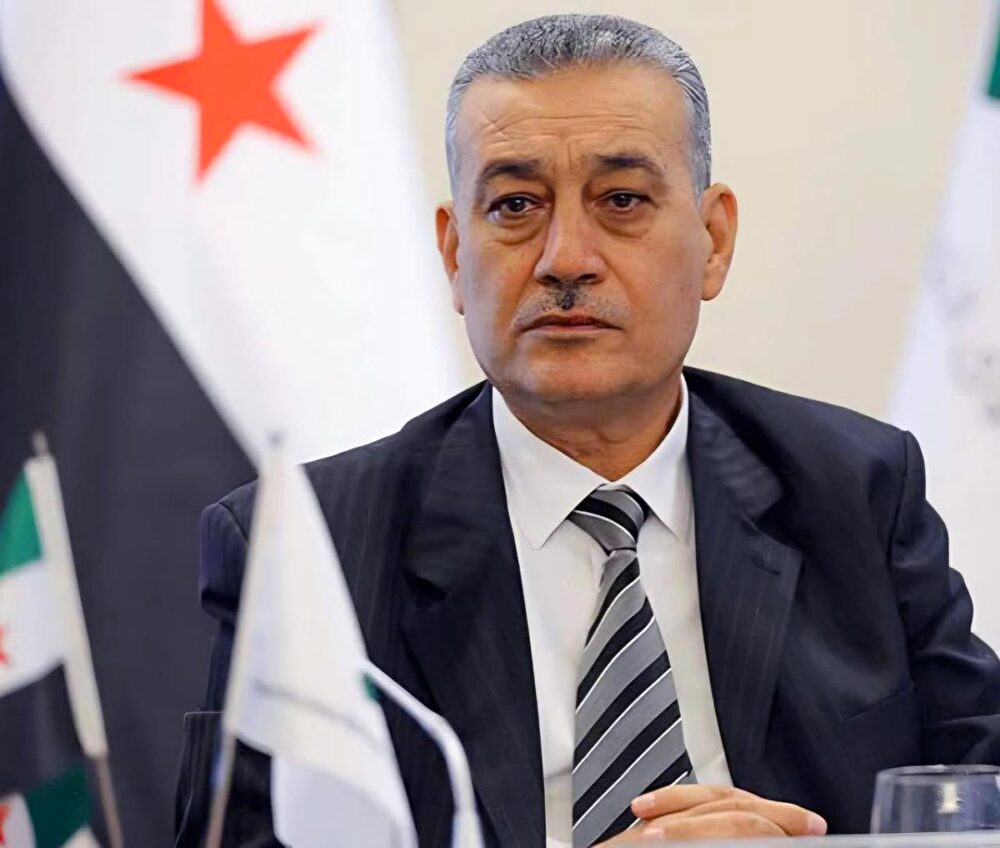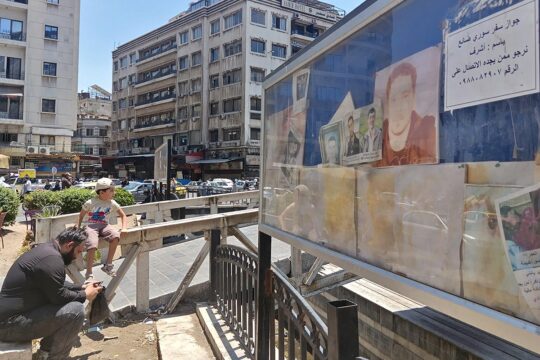On May 17, 2025, a significant announcement stirred a mixture of hope and dread across Syrian civil society. The transitional President Ahmad al-Sharaa issued Decree No. 20, establishing the long-anticipated National Commission for Transitional Justice (NCTJ). For a country long disfigured by war, authoritarianism, and mass atrocities, the very notion of transitional justice carries immense weight. It holds within it the promise of dignity, accountability, and a future freed from the shackles of impunity. But when hope is compromised by exclusion and selectivity, justice risks becoming another instrument of political narrative rather than a foundation for healing.
Decree No. 20 is not just a bureaucratic milestone; it is a test of Syria's moral and legal commitment to a truly inclusive transition. However, as the decree currently stands, it fails that test. Not because it lacks ambition, but because it narrows its scope to investigate only the crimes committed by the former Assad regime. This selectivity is not only legally problematic but also ethically corrosive. Transitional justice, if it is to be worthy of its name, cannot afford to become a tool of selective memory.
A Welcome Step, Marred by Exclusion
Let us first acknowledge what this moment represents. For the thousands of Syrian families still reeling from enforced disappearances, torture, displacement, and loss, the establishment of the NCTJ is a symbolic gesture of recognition. It acknowledges that justice must be part of Syria's path forward. It reflects the aspirations outlined in Article 49 of the March 2025 Constitutional Declaration, which calls for a transitional justice commission rooted in victim-centered and consultative mechanisms.
Yet, as detailed in critiques by international NGOs Human Rights Watch and Amnesty International, and a powerful joint statement by 21 Syrian civil society organizations, the scope of the decree starkly contradicts the inclusive principles of the Constitutional Declaration. The decree tasks the commission with “uncovering the truth about grave violations caused by the defunct regime.” By anchoring its mandate solely to one perpetrator group, the decree forecloses the possibility of investigating atrocities committed by other actors – some of whom are still active and influential in transitional institutions today. The Commission's current mandate would ignore violations by Islamic State (ISIS), Hay'at Tahrir al-Sham (HTS, the Islamic armed group led by al-Sharaa), the Syrian National Army (SNA, a coalition of armed Syrian opposition groups supported by Turkey), foreign fighters and militias, or regional powers complicit in aerial bombardments and unlawful detentions.
This is not a minor omission. It violates Article 10 of the Constitutional Declaration, which guarantees equality before the law, and Article 12, which binds Syria to international human rights treaties. It also renders the entire transitional justice process vulnerable to accusations of political instrumentalization.
Victim communities across Syria—whether Alawite families mourning mass killings on the coast in March 2025 or Kurdish families seeking accountability for forced displacement—have made clear one truth: justice cannot be a privilege bestowed upon select constituencies. It must be a universal right.
To codify one category of victimhood over others is to erect a hierarchy of suffering. It deepens social divisions, denies many their right to recognition and reparation, and undermines trust in the very mechanisms meant to deliver justice. True transitional justice is restorative, not retaliatory. It must be unafraid to confront all atrocities, even those committed in the name of liberation.
Bringing the victims back on board
The current text of Decree No. 20 does not merely suffer from ethical and political shortcomings. It raises serious legal red flags. Several experts, including those cited by Syria Justice and Accountability Centre, a human rights NGO, point out that restricting justice to a single perpetrator group also violates Syria's obligations under the International Covenant on Civil and Political Rights, which requires access to remedy and non-discrimination.
Furthermore, the Constitutional Declaration clearly mandates the establishment of consultative mechanisms based on victims, which was bypassed when drafting the decree. Not a single victims' association was meaningfully involved. As if transitional justice could be designed in a closed room without those who bore the brunt of the violations.
In Syria's context, we cannot afford this. Every child born into a family that has lost someone to torture, to bombing, to sectarian execution, is watching how this country will choose to remember. If justice only wears one uniform, we risk recreating the same cycles of silence, impunity, and revenge that we seek to dismantle.
In the same vein, there is a specific argument for an open-ended mandate for the NCTJ, even though this would be atypical in transitional justice practice. Unlike many transitions where violations cease following a peace accord or regime change, Syria’s trajectory remains volatile. To constrain the Commission’s mandate to a fixed period risks drawing an artificial line in Syria’s recent history – one that abandons newer victims to silence and creates a hierarchy of suffering. In doing so, it contradicts the very principle of equal citizenship that the transitional process claims to uphold. In a context where violations are ongoing and the architecture of accountability is still being shaped, an open-ended mandate is not a luxury – it is a moral and legal imperative. It ensures that no victim is left behind and that the state signals its commitment not only to reckoning with the past but to actively preventing its repetition.
A Path Forward
There is still a chance to salvage Decree No. 20, and to repurpose it from a narrow legal device into a gateway for inclusive national healing. Syrian civil society has already outlined a roadmap:
1. Draft a comprehensive Transitional Justice Law through an open and inclusive legislative process. This law should define the Commission's mandate, appointment criteria, and powers, ensuring its independence and professionalism.
2. Expand the NCTJ's mandate to include all violations committed by all parties from the start of the uprising in March 2011 to the end of the transitional period.
3. Institutionalize participation of victims and survivors in shaping the Commission's priorities, methodologies, and performance indicators. Their perspectives must guide the search for truth and the design of reparations.
4. Ensure full transparency in the Commission's operations, budgets, reporting, and personnel selections. The Syrian people must be able to scrutinize and trust this body.
5. Support and integrate local accountability efforts, such as the National Committee for Investigation on the Syrian Coast, recognizing their role as vital pillars in a broader justice architecture.
6. Foster coordination with international mechanisms such as the UN's International, Impartial and Independent Mechanism (IIIM) and the Independent Institution on Missing Persons. Lessons learned and resources accumulated over a decade must not be ignored.
This Is the Syrian People's Moment
If we are to believe in justice, we must center it on people, not power. Decree No. 20 was an opportunity to affirm this belief. But it faltered by constructing a vision of transitional justice that is both legally narrow and morally insufficient.
Syrians have not waited passively for justice. Families of the disappeared have marched, documented, litigated, and carried the weight of memory with courage. Civil society has built archives, offered psychosocial support, and imagined models of accountability long before governments did. This accumulated knowledge and will must now be honored, not sidelined.
As someone who has walked alongside these movements, I know that Syrians do not demand perfection. They ask for sincerity, fairness, and acknowledgment. The coming weeks, as the NCTJ drafts its internal regulations, are critical. Will it listen? Will it adapt?
This moment is fragile, yes. But it is also full of possibility. Syria can still choose to walk toward a justice that heals rather than divides. But that choice demands courage—from those in power, from institutions, and from us all.
Let us not squander this moment.

Mustafa Haid is a Syrian human rights advocate, senior advisor, and writer with over 15 years of experience working on transitional justice, accountability, civil society, and gender mainstreaming in Syria and beyond. He is the founder of the Dawlaty organization and holds a Master’s degree in Conflict Resolution from King’s College London.







